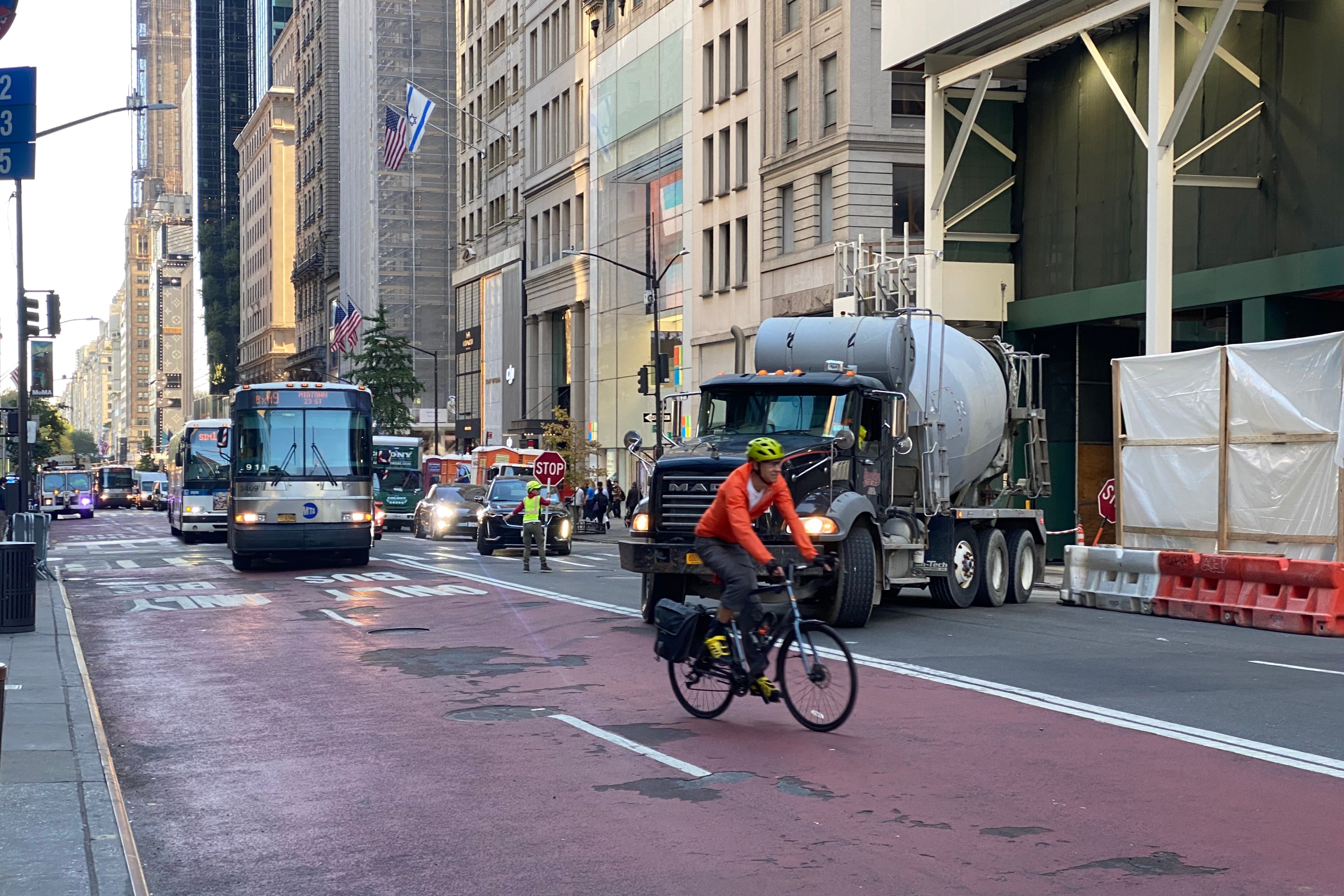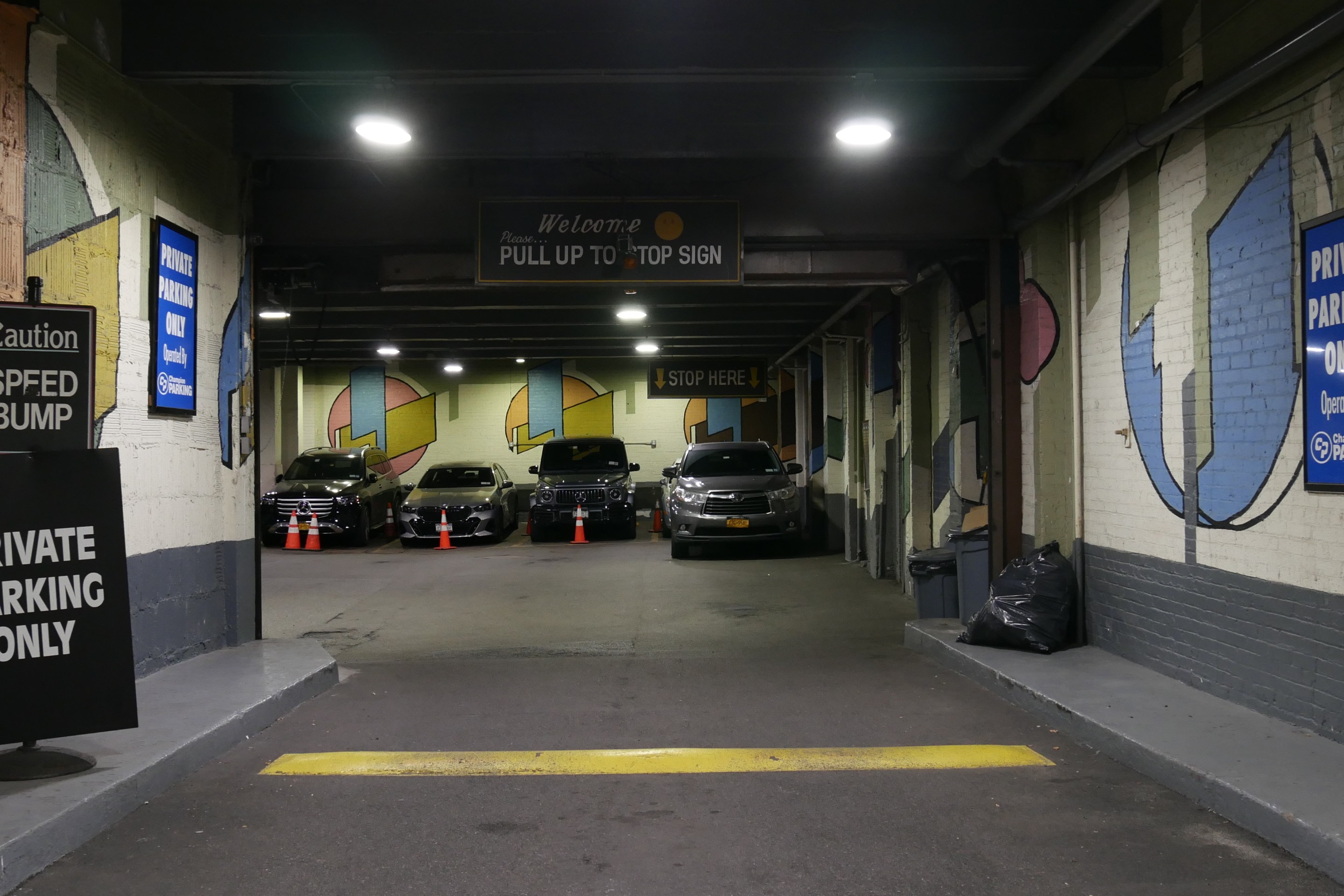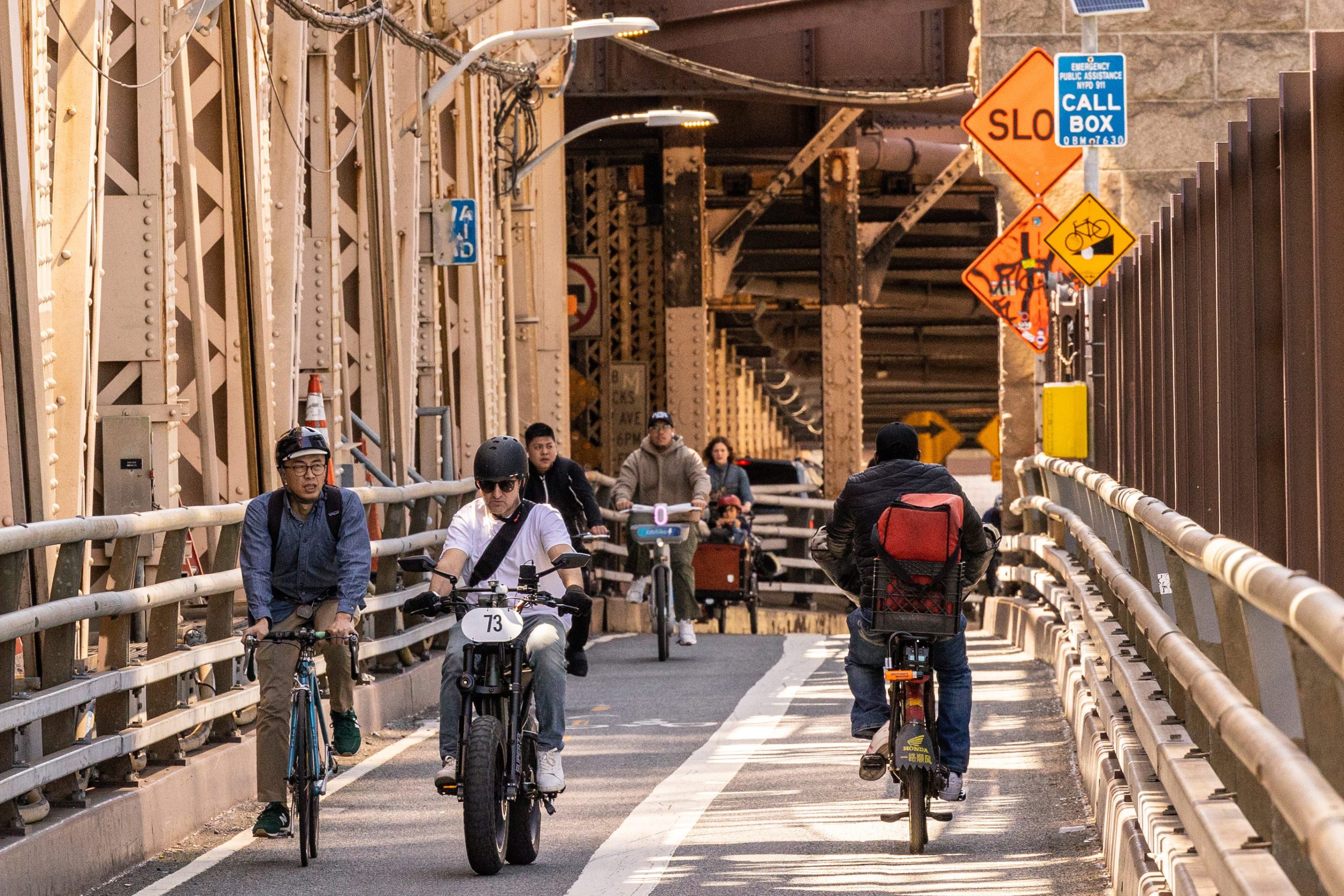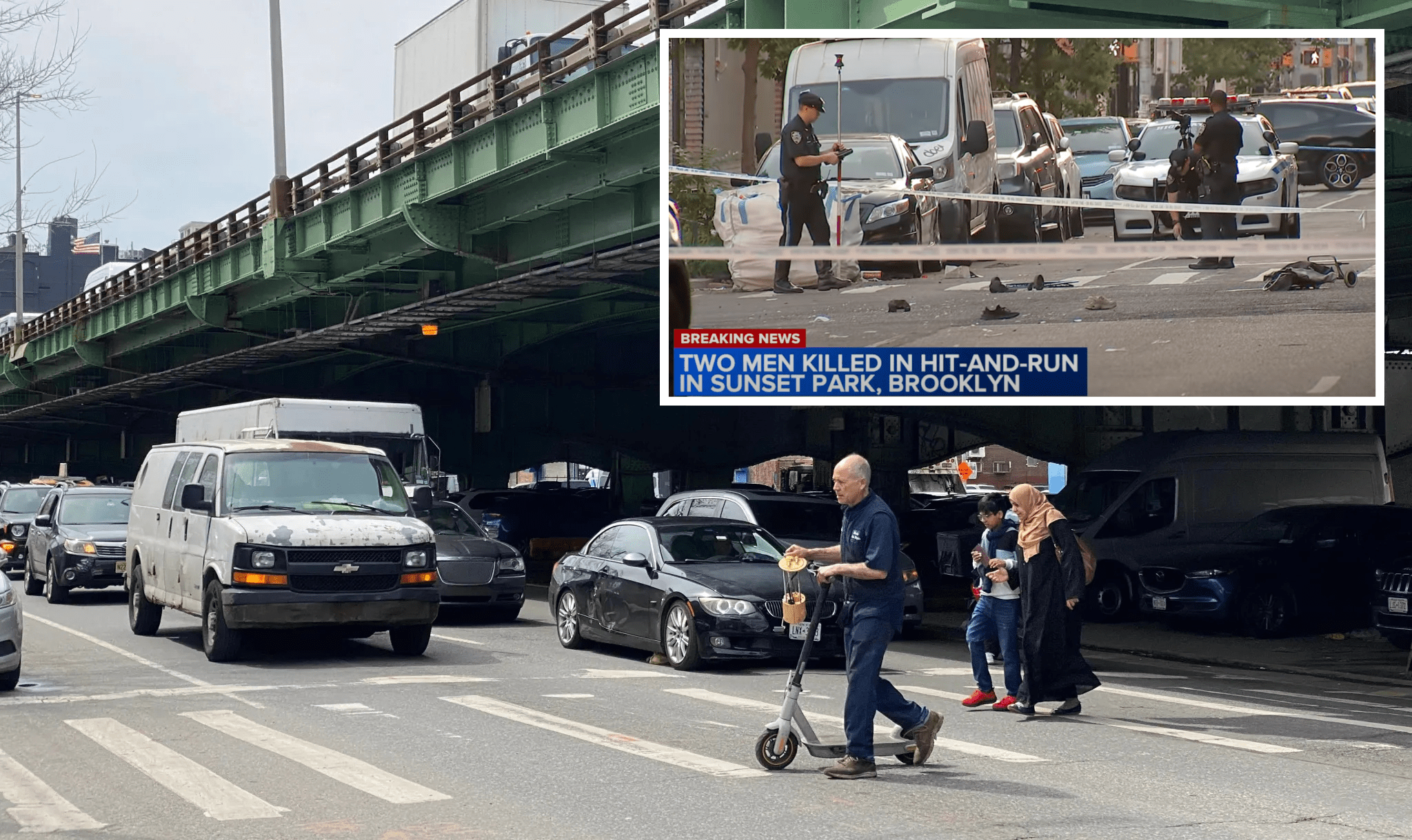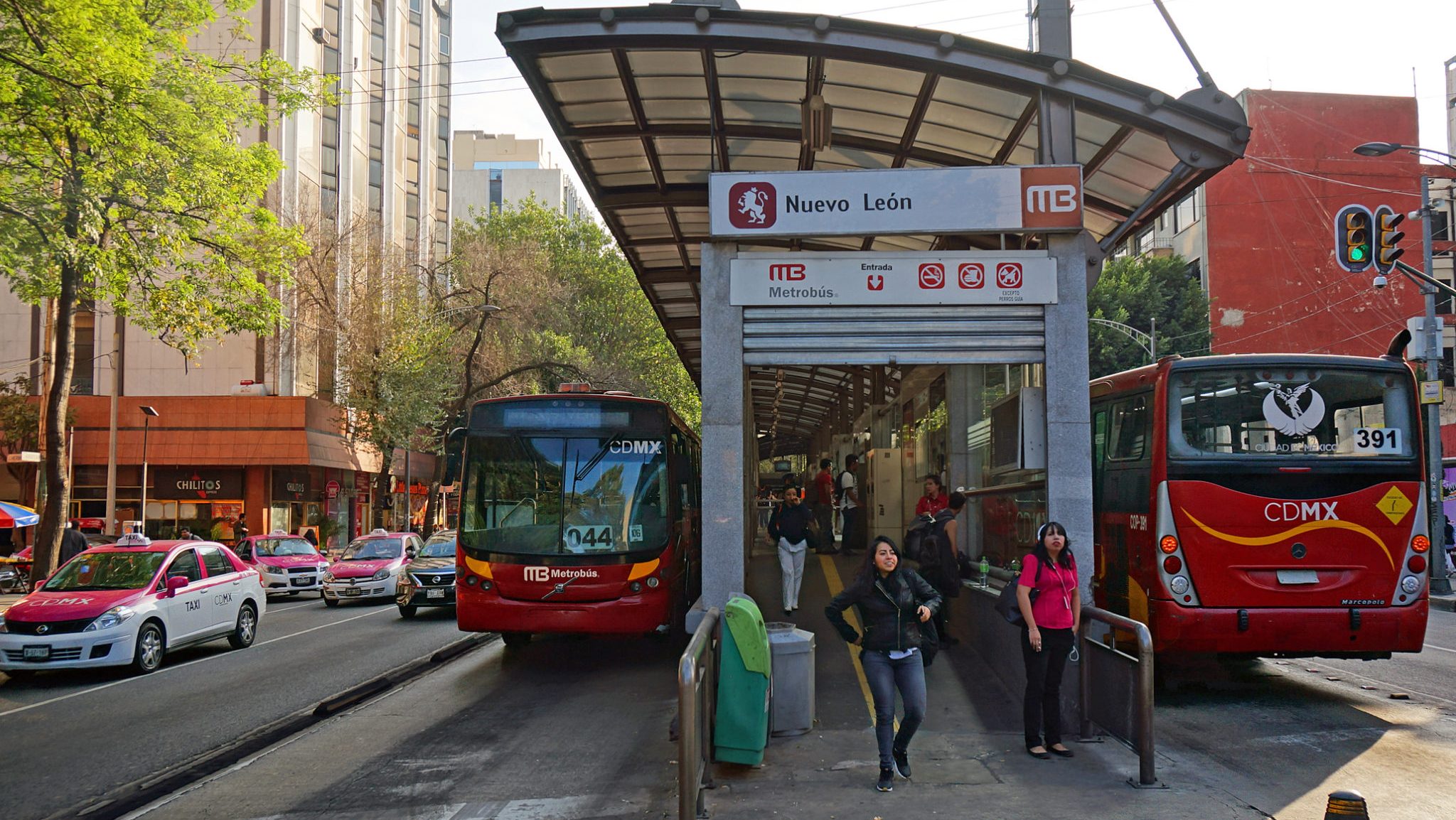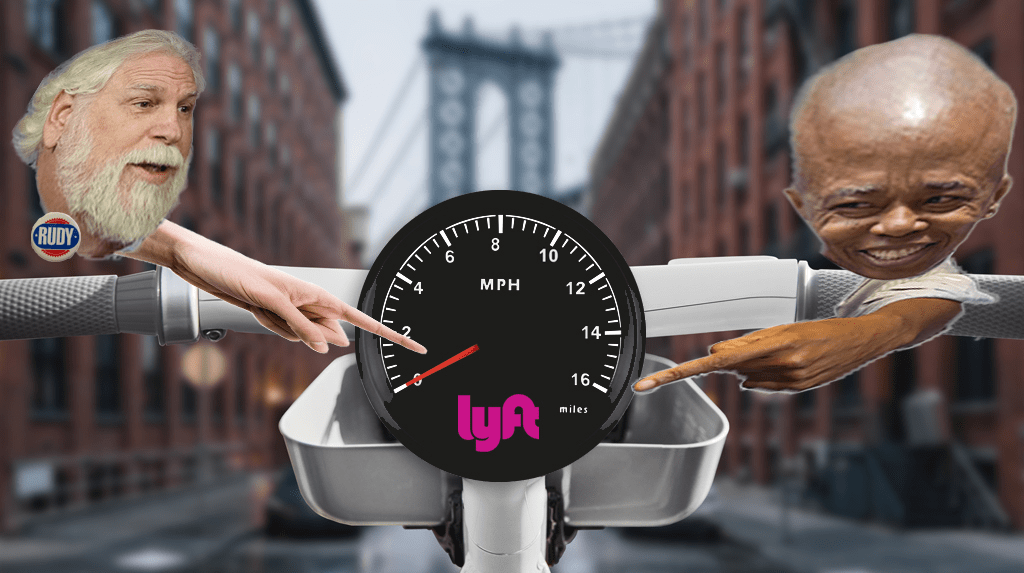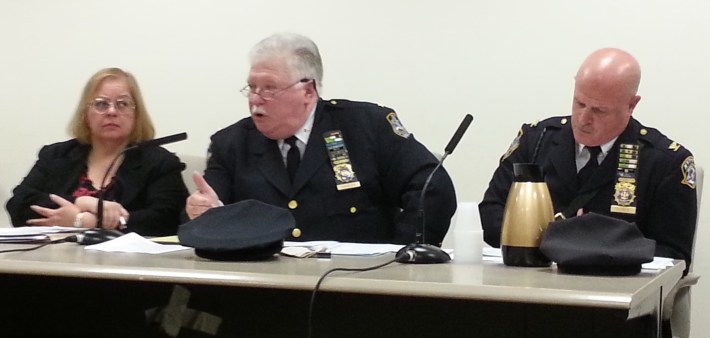
This morning, the City Council's transportation and public safety committees held a joint oversight hearing of NYPD's crash investigation policies. It was the first time committee chairs James Vacca and Peter Vallone had put police brass on the spot since February 2012, when a joint oversight hearing unearthed new information about NYPD's lackluster crash investigations. Since then, NYPD has initiated some reforms, but today's testimony showed that the department's internal changes only go so far. Much more progress must be made before New York has truly comprehensive crash investigations.
Today's hearing yielded status updates on the internal changes NYPD made last spring, and the gaps that remain in the department's crash investigation protocol.
Last year, CIS had a staff of 19. Currently, CIS has a staff of 27: One lieutenant, four sergeants, and 22 investigators. Deputy Chief John Cassidy, executive officer of NYPD's transportation bureau, said five additional investigators will be added to CIS staff "in the near future." There is also a new unit, the Collision Technician Group, which collects evidence and performs analysis of crash scenes. This work had previously been performed by NYPD's Highway Patrol personnel, in addition to their other duties. The Collision Technician Group currently has a staff of one sergeant and 12 technicians.
In addition to internal training, staff attends crash investigation and reconstruction courses from Northwestern University's Center for Public Safety. The agency has also replaced tape measures with electronic surveying tools, and uses onboard instruments to measure a vehicle's braking and acceleration forces.
As of September 1, there have been 189 traffic fatalities in 2013, down slightly from 192 at the same point last year. Over the same period, there were 36,378 collisions involving injuries, down slightly from 37,073 the year before, continuing a long-term trend. The number of CIS investigations as of September of this year stands at 293, up from 238 during the same period last year -- a 23 percent increase. Because NYPD's policy changes only took effect in April, Cassidy said he expects the increase in CIS investigations to grow even more over the next year. In his introductory remarks, Vacca said that NYPD expects to investigate three times as many crashes as before.
Even as the number of CIS investigations has increased, council members were concerned that NYPD's new policy didn't go far enough in creating a standard for when a crash must be investigated. FDNY's definition for "critical injury" means that a victim must be either experiencing respiratory arrest, receiving CPR, or receiving life-sustaining ventilator or circulatory support for an investigation to be launched. "Is that the right standard?" asked Council Member Dan Garodnick. "It seems to me a crash victim who has both legs broken, for example, but is not in respiratory arrest, there would not be a CIS investigation called under those circumstances."
NYPD attorney Susan Petito replied that when an investigation is not required by policy, precinct captains and executive officers have discretion in deciding when to launch an investigation. When Garodnick asked how many of this year's 293 CIS investigations were launched at a captain's request, NYPD said it could not break out that data.
This response did not satisfy Vacca. "Discretion cannot be open-ended. We are here because we want policies that will change what was not in place before," he said after the hearing. "There has to be guidance from the top that is very clear. That worried me a little bit."
Advocates argue that NYPD's policy of only investigating crashes with "critical" injuries is in violation of state Vehicle and Traffic Law Section 603-a, which requires investigations in case of fatality or serious physical harm. NYPD said today that for the purposes of state law, crash reports qualify as investigations. "Every accident that police respond to results in the preparation of an accident report," Petito said. "That is sufficient, we believe, to satisfy the VTL."
"The VTL mandates that police investigate whether summonses or certain criminal charges should be issued to the driver(s) involved in a serious injury crash," attorney Steve Vaccaro said in an e-mail. "That is by definition not part of the 'investigation' done when an accident report is prepared." Vaccaro said that because NYPD policy only allows CIS officers to issue summonses for violations they did not witness, only CIS-investigated crashes get the state-required investigation.
"Those summonses are routinely dismissed by Traffic Violations Bureau administrative law judges because they were not personally witnessed," Petito said, adding that NYPD is reaching out to judges about the issue and supports a change in state law that would explicitly state that officers do not have to personally witness an infraction in order to issue a ticket. A bill to this effect cleared the State Senate this year but failed to pass in the Assembly. During testimony today, Transportation Alternatives executive director Paul Steely White said his organization would push for the legislation again next year.
White also pointed out that although NYPD's summonses numbers are up, its traffic enforcement does not prioritize cracking down on the behaviors that most endanger New Yorkers, like speeding and failure to yield. Even the majority of speeding enforcement, he noted, is performed by the highway unit, not by precincts on local streets. "The reality is that the police department is giving the easy tickets," Council Member David Greenfield said. "You need to have a system where the focus shouldn't be just on willy-nilly ticket giving, but rather on what's most important for the safety of motorists, drivers, and cyclists."
Garodnick asked if there were cases where CIS would presume guilt on the part of the driver. Inspector Paul Ciorra, commanding officer of NYPD's Highway Unit, said that visible intoxication or intentionally and knowingly leaving the scene of a crash would qualify a driver to be presumed guilty. Garodnick then asked if speeding would qualify for presumed guilt. "No sir," Ciorra replied.
Responding to a question from Council Member Jimmy Van Bramer, Ciorra said that of the 189 fatalities investigated by CIS so far this year, 20 cases resulted in arrest, 3 had leads exhausted, and 102 resulted in "no summary action." Ciorra said that it's common for the majority of crashes to never result in charges or even a ticket. "The collision was deemed for whatever reason, just that -- a collision," he said.
Cassidy also said today that all NYPD precincts have four speed guns available for use, a claim that Vacca disputed. "I doubt that every precinct has four speed guns, and if they do, they don't all work," he said. "I will be pursuing that."
With a new mayoral administration just months away, some council members asked whether a point-person or working group could help improve traffic safety and crash investigations. "Is there really one person in the city that's responsible for traffic safety?" Greenfield asked. "Should there be some kind of traffic safety guru in the City of New York?"
"Someone needs to be in charge," TA's White replied. "I would submit to you that person is the mayor of New York City."
